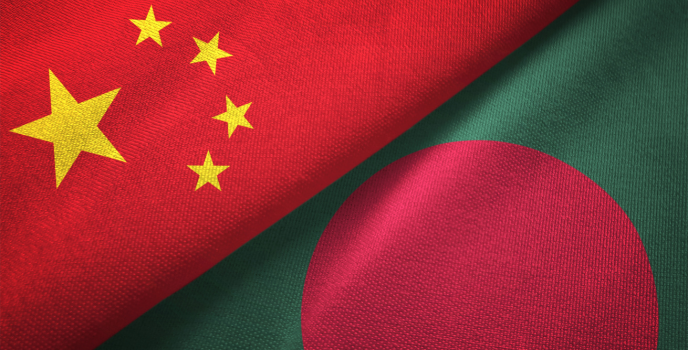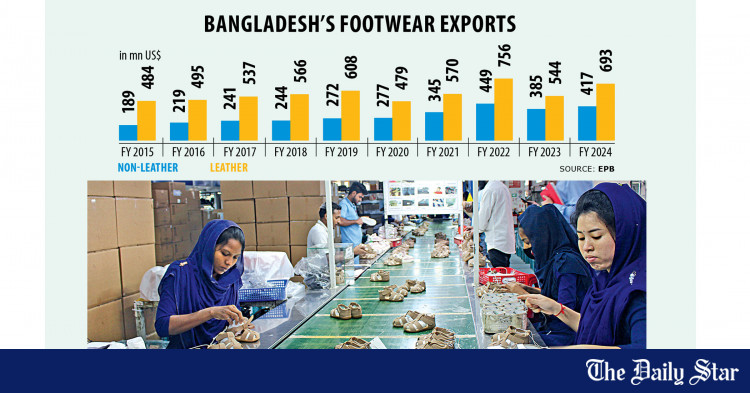[🇧🇩] D-8 Organization and Bangladesh for Economic Cooperation
- By Saif
- Bangladesh Strategic Affairs
- 1 Replies

D-8: Chief Adviser Yunus set to embark on Egypt tour tonight
Chief Adviser Prof Muhammad Yunus is set to leave Dhaka tonight (Tuesday night) on a three-day visit to Egypt to attend the 11th D-8 Summit in Cairo. “The Chief Adviser will leave here for Egypt tonight to attend the D-8 Summit,” said CA's Deputy Press Secretary Abul Kalam Azad Majumde
D-8: Chief Adviser Yunus set to embark on Egypt tour tonight
Published :
Dec 17, 2024 19:28
Updated :
Dec 17, 2024 19:28

Chief Adviser Prof Muhammad Yunus is set to leave Dhaka tonight (Tuesday night) on a three-day visit to Egypt to attend the 11th D-8 Summit in Cairo.
“The Chief Adviser will leave here for Egypt tonight to attend the D-8 Summit,” said CA's Deputy Press Secretary Abul Kalam Azad Majumder at a press briefing at the Foreign Service Academy.
He said the flight carrying the chief adviser will depart here around 1:00 am (Wednesday), UNB reports.
Heads of government from several more countries, including Bangladesh, Indonesia, Turkey, Iran and Pakistan, will join the summit (on Dec 19), Azad Majumder said.
Referring to the theme of this year's D-8 Summit, “Investing in Youth and Supporting SMEs: Shaping Tomorrow's Economy,” he said this summit is important for Bangladesh as the chief adviser has been speaking for utilising the strength and potential of youths after taking over the charge.
“He (CA) always wants our youths to flourish with their full potential and he has been working to this end. Now he will get a scope to work on it in a global forum (D-8),” he said.
Besides, the Chief Adviser will deliver a lecture in the Al-Azhar University in Cairo, said Azad Majumder.
CA's Press Secretary Shafiqul Alam also spoke at the briefing, while CA’s Senior Assistant Press Secretary Foyez Ahammad was present.
This week marks an "important moment" for the D-8 with the 48th Session of the D-8 Commission meeting held in Cairo.
Over the next few days, key discussions will unfold, culminating in the 21st Session of the D-8 Council of Foreign Ministers on December 18 and the highly anticipated 11th D-8 Summit on December 19.
These meetings will bring together leaders to strengthen economic cooperation and outline a shared vision for sustainable development among member states.
The D-8 Organisation for Economic Cooperation, also known as Developing-8, is an organisation for development cooperation among Bangladesh, Egypt, Indonesia, Iran, Malaysia, Nigeria, Pakistan, and Turkey.
Published :
Dec 17, 2024 19:28
Updated :
Dec 17, 2024 19:28
Chief Adviser Prof Muhammad Yunus is set to leave Dhaka tonight (Tuesday night) on a three-day visit to Egypt to attend the 11th D-8 Summit in Cairo.
“The Chief Adviser will leave here for Egypt tonight to attend the D-8 Summit,” said CA's Deputy Press Secretary Abul Kalam Azad Majumder at a press briefing at the Foreign Service Academy.
He said the flight carrying the chief adviser will depart here around 1:00 am (Wednesday), UNB reports.
Heads of government from several more countries, including Bangladesh, Indonesia, Turkey, Iran and Pakistan, will join the summit (on Dec 19), Azad Majumder said.
Referring to the theme of this year's D-8 Summit, “Investing in Youth and Supporting SMEs: Shaping Tomorrow's Economy,” he said this summit is important for Bangladesh as the chief adviser has been speaking for utilising the strength and potential of youths after taking over the charge.
“He (CA) always wants our youths to flourish with their full potential and he has been working to this end. Now he will get a scope to work on it in a global forum (D-8),” he said.
Besides, the Chief Adviser will deliver a lecture in the Al-Azhar University in Cairo, said Azad Majumder.
CA's Press Secretary Shafiqul Alam also spoke at the briefing, while CA’s Senior Assistant Press Secretary Foyez Ahammad was present.
This week marks an "important moment" for the D-8 with the 48th Session of the D-8 Commission meeting held in Cairo.
Over the next few days, key discussions will unfold, culminating in the 21st Session of the D-8 Council of Foreign Ministers on December 18 and the highly anticipated 11th D-8 Summit on December 19.
These meetings will bring together leaders to strengthen economic cooperation and outline a shared vision for sustainable development among member states.
The D-8 Organisation for Economic Cooperation, also known as Developing-8, is an organisation for development cooperation among Bangladesh, Egypt, Indonesia, Iran, Malaysia, Nigeria, Pakistan, and Turkey.










